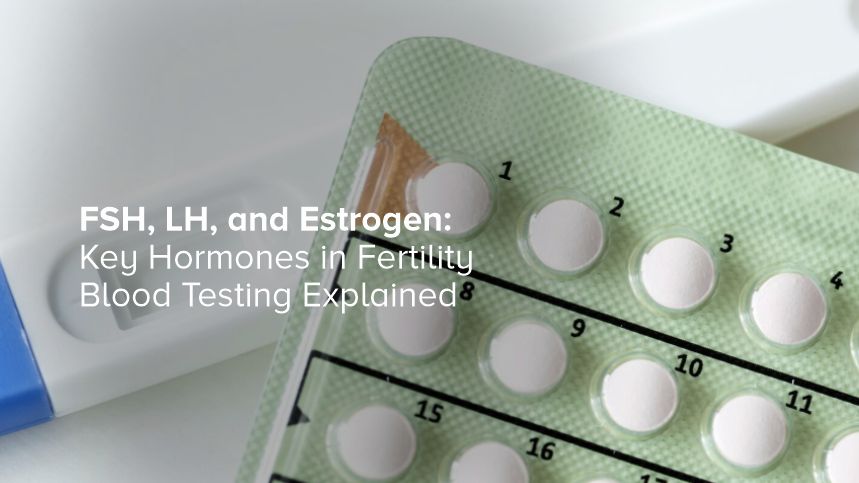


Condition
- Preventive Health Checkup
- Diabetes
- Top tests
- Diabetes
- Allergy
- Heart Disease & Hypertension
- Diabetes
- Heart Disease & Hypertension
- Diabetes
- Lifestyle Packages
- Lifestyle Packages
- Top tests
- Preventive Health Checkup
- Lifestyle Packages
- Preventive Health Checkup
- Preventive Health Checkup
- Diabetes
- Top tests
- Heart Disease & Hypertension
- Preventive Health Checkup
- Top tests
- Heart Disease & Hypertension
- Lifestyle Packages
- Lifestyle Packages
- Diabetes
- Preventive Health Checkup
- Top tests
- Diabetes
- Top tests
- Preventive Health Checkup
- Preventive Health Checkup
- Preventive Health Checkup
- Diabetes
- Lifestyle Packages
- Lifestyle Packages
- Heart Disease & Hypertension
- Lifestyle Packages
- Heart Disease & Hypertension
- Lifestyle Packages
- Preventive Health Checkup
- Preventive Health Checkup
- Preventive Health Checkup
- Lifestyle Packages
- Top tests
- Lifestyle Packages
- Top tests
- Lifestyle Packages
- Top tests
- Diabetes
- Diabetes
- Others
- Blood Disorders
- Top tests
- Others
- Others
- Others
- Fever
- Fever
- Blood Disorders
- Blood Disorders
- Preventive Health Checkup
- Preventive Health Checkup
- Profile
- Kidney Disease
- Kidney Disease
- Diabetes
- Diabetes
- Heart Disease & Hypertension
- Preventive Health Checkup
- Lifestyle Packages
- Thyroid Disorder
- Diabetes
- Diabetes
- Diabetes
- Diabetes
- Diabetes
- Diabetes
- Diabetes
- Top tests
- Allergy
- Top tests
- Top tests
- Top tests
- Top tests
- Diabetes
- Top tests
- Diabetes
- Top tests
- Top tests
- Top tests
- Liver Disease
- Diabetes
- Top tests
- Vitamin Deficiency
- Top tests
- Top tests
- Liver Disease
- Top tests
- Top tests
- Top tests
- Anemia
- Anemia
- Anemia
- Diabetes
- Diabetes
- Anemia
- Top tests
- Top tests
- Top tests
- Preventive Health Checkup
- Thyroid Disorder
- Heart Disease & Hypertension
- Top tests
- Preventive Health Checkup
- Diabetes
- Heart Disease & Hypertension
- Top tests
- Fever
- Allergy
- Liver Disease
- Lifestyle Packages
- Heart Disease & Hypertension
- Top tests
- Arthritis
- Top tests
- Top tests
- Heart Disease & Hypertension
- Kidney Disease
- Preventive Health Checkup
- Allergy
- Top tests
- Lifestyle Packages
- Top tests
- Kidney Disease
- Top tests
- Lifestyle Packages
- Top tests
- Preventive Health Checkup
- Preventive Health Checkup
- Top tests
- Top tests
- Vitamin Deficiency
- Allergy
- Diabetes
- Top tests
- Top tests
- Top tests
- Top tests
- Heart Disease & Hypertension
- Allergy
- Top tests
- Preventive Health Checkup
- Top tests
- Top tests
- Infertility
- Top tests
- Lifestyle Packages
- Allergy
- Diabetes
- Heart Disease & Hypertension
- Lifestyle Packages
- Preventive Health Checkup
- Preventive Health Checkup
- Top tests
- Preventive Health Checkup
- Top tests
- Diabetes
- Top tests
- Infertility
- Top tests
- Thyroid Disorder
- Top tests
- Allergy
- Preventive Health Checkup
- Vitamin Deficiency
- Top tests
- Top tests
- Infertility
- Lifestyle Packages
- Diabetes
- Liver Disease
- Kidney Disease
- Vitamin Deficiency
- Top tests
- Heart Disease & Hypertension
- Heart Disease & Hypertension
- Top tests
- Heart Disease & Hypertension
- Heart Disease & Hypertension
- Heart Disease & Hypertension
- Infertility
- Heart Disease & Hypertension
- Vitamin Deficiency
- Vitamin Deficiency
- Arthritis
- Arthritis
- Top tests
- Top tests
- Lifestyle Packages
- Preventive Health Checkup
- Lifestyle Packages
- Preventive Health Checkup
- Vitamin Deficiency
- Top tests
- Lifestyle Packages
- Lifestyle Packages
- Preventive Health Checkup
- Top tests
- Preventive Health Checkup
- Top tests
- Heart Disease & Hypertension
- Infertility
- Top tests
- Top tests
- Preventive Health Checkup
- Lifestyle Packages
- Top tests
- PCOD
- Preventive Health Checkup
- Lifestyle Packages
- Preventive Health Checkup
- Top tests
- Fever
- PCOD
- Kidney Disease
- Top tests
- Top tests
- Preventive Health Checkup
- Preventive Health Checkup
- Liver Disease
- Thyroid Disorder
- Top tests
- Heart Disease & Hypertension
- PCOD
- Top tests
- Arthritis
- Preventive Health Checkup
- Kidney Disease
- Lifestyle Packages
- Top tests
- Allergy
- Top tests
- Top tests
- Diabetes
- Thyroid Disorder
- Preventive Health Checkup
- Top tests
- Lifestyle Packages
- Preventive Health Checkup
- Top tests
- Kidney Disease
- Liver Disease
- Infertility
- Top tests
- Anemia
- Top tests
- Top tests
- Top tests
- Preventive Health Checkup
- Bone Health
- Cancer
- Fatty Liver

Tests
Dengue fever, a mosquito-borne viral infection, poses a significant public health threat, particularly in tropical and subtropical regions. With symptoms ranging from high fever and rash to severe bleeding and organ damage in critical cases, timely and accurate diagnosis is vital. This is where diagnostic testing plays a key role.
When it comes to diagnosing dengue, two primary options are available — Rapid Dengue Tests and Laboratory-Based Tests. While both serve the same purpose, they differ significantly in terms of methodology, accuracy, time to results, and reliability. In this blog, we’ll break down the differences between these two types of tests, explore their respective advantages and limitations.
Understanding Dengue Fever and the Need for Accurate Diagnosis
Dengue is caused by one of four related viruses transmitted by the Aedes mosquito. The early symptoms often mimic other infections such as malaria or flu, making clinical diagnosis challenging. Common symptoms include:
- High-grade fever
- Severe headache
- Pain behind the eyes
- Muscle and joint pains
- Nausea and vomiting
- Skin rash
Given these non-specific symptoms, lab confirmation becomes essential to differentiate dengue from other illnesses, monitor disease progression, and prevent complications.
Types of Dengue Diagnostic Tests
Dengue testing falls into two broad categories:
1. Rapid Diagnostic Tests (RDTs)
These are point-of-care tests designed to provide quick results (typically within 15–30 minutes). RDTs detect dengue antigens or antibodies in a patient’s blood.
- NS1 Antigen Test (Rapid): Detects non-structural protein 1 (NS1), a viral antigen, usually present in the blood during the early stage (first 0–5 days) of infection.
- IgM/IgG Antibody Test (Rapid): Detects antibodies produced by the immune system after infection. IgM appears after 4–5 days of illness, while IgG appears later and can indicate past infection.
2. Laboratory-Based Tests
These tests are more sensitive and accurate and are typically performed in certified diagnostic laboratories.
- RT-PCR (Reverse Transcription Polymerase Chain Reaction): Detects dengue virus RNA in the blood. It is the gold standard for confirming dengue during the first 5 days of infection.
- ELISA (Enzyme-Linked Immunosorbent Assay): Measures levels of NS1 antigen or IgM/IgG antibodies in a patient’s blood. ELISA-based tests offer high sensitivity and specificity.
- Complete Blood Count (CBC): While not dengue-specific, a CBC helps monitor platelet levels and white blood cells, which can signal complications.
Factors to Consider When Choosing a Dengue Test
Diagnosing dengue fever accurately and promptly is crucial to ensure proper treatment and avoid complications. With multiple testing options available—such as rapid diagnostic tests (RDTs) and laboratory-based tests—knowing which one to choose can be confusing. Here are some essential factors to consider when selecting the most appropriate dengue test:
1. Stage of Infection
The timing of the test in relation to symptom onset is one of the most important factors.
- Day 1 to Day 5 (Early Phase):
Look for NS1 Antigen or RT-PCR tests. These detect the presence of the virus itself and are ideal for early diagnosis. - Day 5 Onward (Later Phase):
Opt for IgM and IgG antibody tests. These detect the body's immune response and are more accurate in the later stages.
2. Type of Symptoms and Severity
- For mild symptoms, a rapid test may be sufficient as a first screening tool.
- For severe symptoms (like bleeding, dehydration, or high fever lasting several days), a comprehensive lab test is recommended to guide hospitalization and treatment decisions.
3. Test Accuracy and Reliability
- Laboratory tests (like ELISA or PCR) are more accurate and reliable, especially for confirmation.
- Rapid tests are quicker but may show false positives or negatives, especially if done at the wrong time.
Benefits of Dengue Rapid Test
- Quick Results
Results within 15–30 minutes enable fast decision-making.
Ideal for emergency rooms, outpatient clinics, and remote areas. - Early Screening
NS1 antigen rapid tests are effective in the first 5 days of fever.
Helps in early identification and isolation of patients to control transmission. - Cost-Effective for Mass Use
Inexpensive compared to lab-based diagnostics.
Allows for mass screening in resource-limited settings.
Benefits of Laboratory Tests (ELISA and RT-PCR)
- High Accuracy and Sensitivity
- Gold standard in dengue diagnosis.
- RT-PCR can detect even low levels of viral RNA, reducing false negatives.
- Detection Across All Stages
- NS1 ELISA is reliable in the early stage, while IgM/IgG ELISA is useful for detecting both current and past infections.
- RT-PCR is highly effective during the acute phase (Day 1–5).
- Differentiation Between Primary and Secondary Infections
- ELISA tests can distinguish between IgM and IgG levels.
- This is crucial because secondary dengue infections carry a higher risk of severe outcomes.
Conclusion
While both dengue rapid tests and laboratory tests have their place in diagnosis and management, understanding their differences is key to making the right clinical decisions.
- Rapid tests are ideal for early screening, especially in low-resource or high-volume settings.
- Laboratory tests, including ELISA and RT-PCR, offer higher accuracy and are critical for confirmation, particularly in complicated or severe cases.
WANT TO BOOK HEALTH CHECKUP ?
Categories
Preventive Health Checkup
38
Diabetes
30
Top tests
78
Allergy
9
Heart Disease & Hypertension
21
Lifestyle Packages
27
Others
4
Blood Disorders
3
Fever
4
Profile
1
Kidney Disease
8
Thyroid Disorder
5
Liver Disease
6
Vitamin Deficiency
7
Anemia
5
Arthritis
4
Infertility
6
PCOD
3
Bone Health
1
Cancer
1
Fatty Liver
1
Recent Blogs
FSH, LH, and Estrogen Explained: Key Hormones in Fertility Blood Testing
Understanding reproductive health often starts with decoding the essential hormones that...
18-06-2025
B12 Deficiency and Fatigue: Role of Vitamin Testing
Feeling constantly drained, no matter how much sleep you get, can be more than just everyday...
18-06-2025
Progesterone Tests in Pregnancy: When and Why They Are Done
When you're pregnant, monitoring the health of both mother and baby is a top priority....
18-06-2025







